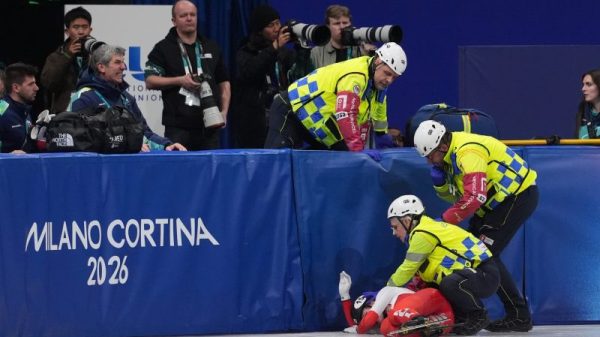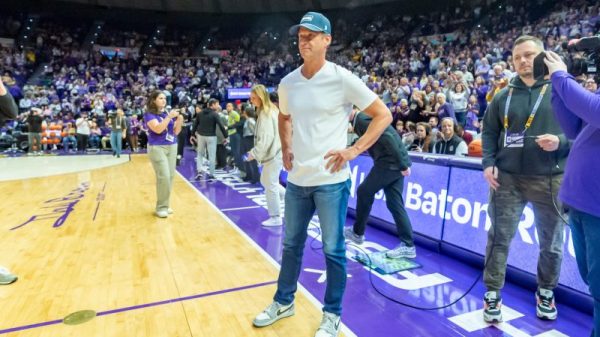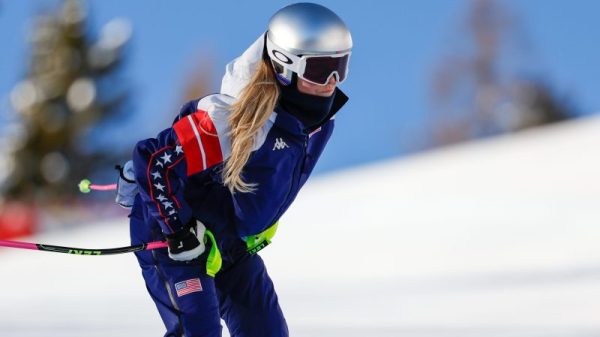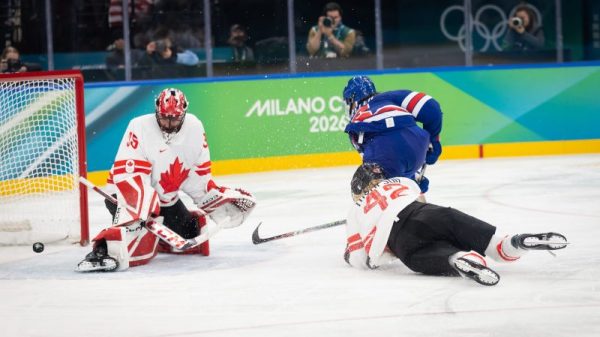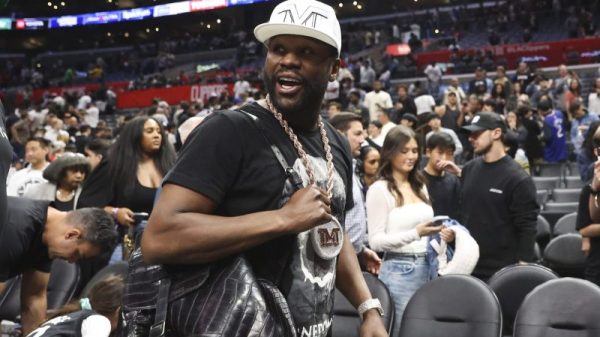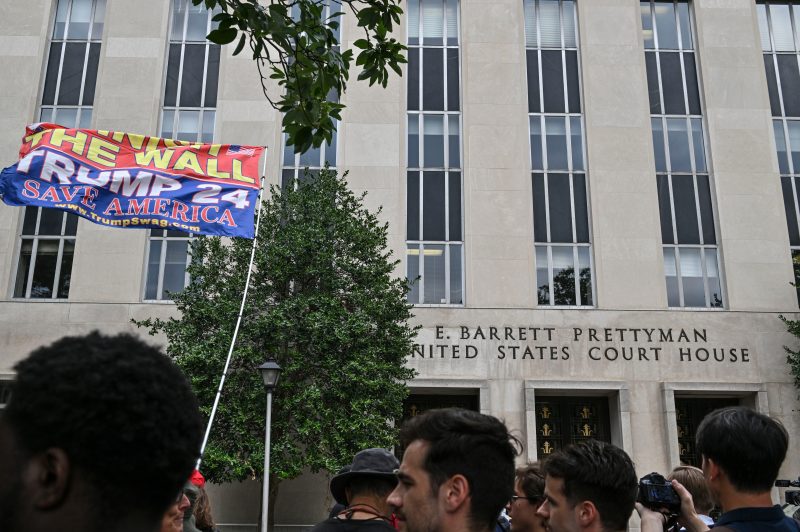The U.S. judge overseeing Donald Trump’s prosecution for allegedly criminally conspiring to overturn Joe Biden’s election victory said that while every American has a First Amendment right to free speech, it is “not absolute” and that even the former president’s campaign statements must give way to protecting the integrity of the court process.
In her first hearing over Trump’s federal case in D.C., U.S. District Judge Tanya S. Chutkan took on extraordinary political and legal challenges of prosecuting Biden’s leading Republican 2024 rival, saying “the fact that [Trump] is running a political campaign” will have no bearing on her decisions and his speech “must yield to the orderly administration of justice.”
“If that means he can’t say exactly what he wants to say about witnesses in this case, then that’s how it’s going to be,” Chutkan said Friday, repeatedly warning Trump and his defense of limits on what they can reveal about government evidence in the case. “Your client’s defense is supposed to happen in this courtroom, not on the internet.”
She directed Trump and lawyers to “take special care” that their public statements in the case could not be seen as intimidating witnesses or prejudicing potential jurors, adding that the more “inflammatory statements” there are, the greater the urgency will be to go to trial to ensure an impartial jury.
“I will take whatever measures are necessary to safeguard the integrity of these proceedings,” she said.
Chutkan’s warnings laid down an early marker in the case, as prosecutors said they were ready Friday to turn over an initial 11.6 million pages of evidence and a hard drive of data taken from electronic devices and online accounts. Chutkan also settled a fight between the sides over a protective order needed to speed the prosecution’s handover of materials and the court’s setting of a trial date, which special counsel Jack Smith’s team has proposed for Jan. 2.
Chutkan set a next hearing for Aug. 28 to set a trial date, saying she was “all for” a speedy trial but could imagine the defense’s arguments for delay given the amount of evidence.
Trump pleaded not guilty last week to charges of conspiring to fraudulently subvert the results of the 2020 election, conspiring and attempting to obstruct Congress’s confirmation of the vote on Jan. 6, 2021, and conspiring against Americans’ civil right to have their votes counted. Since then, he has lobbed varying attacks, calling Smith “deranged” and former vice president Mike Pence — a key witness and 2024 GOP presidential nomination opponent — “delusional,” and vowed his defense would call for Chutkan’s “recusal,” although his lawyers walked back that claim.
In court Friday, Assistant U.S. Attorney Thomas Windom argued that Trump’s strategy was tailored to try this case in the media and improperly disclose evidence “for political purposes.”
“He has shown a tendency to hold on to material to which he should not,” Windom said, alluding to Trump’s prosecution on charges of mishandling classified documents and obstruction at his Mar-a-Lago resort club and home after leaving office.
Trump’s lawyers argued that the limits are overly burdensome on their client, that the political consequences of the case were of the Biden administration’s making, and that the burden should be on the government, not the defendant, to justify muzzling him from discussing any single piece of evidence.
“We have to face the fact we are in uncharted waters here, where we have a defendant running for office, and the opposing administration is bringing criminal charges against him,” defense attorney John Lauro said. “President Trump has [to have] the ability to respond fairly to political opponents” and not campaign under a “chill.”
Lauro elaborated, “The risk is that someone can say something in the course of a heated debate or in a heated campaign, and they [prosecutors] are going to throw a flag: ‘Wait a minute, somewhere in the bowels of discovery there’s something that’s related to something you just said.”
Trump for his part has scoffed at the notion that he would not talk about his criminal cases. “I’ll come here and I’ll say, ‘Hi, everybody, listen, I’m not allowed to speak. Please vote for me, New Hampshire, if you would. Bye,’” Trump said sarcastically at a campaign stop earlier this week. “I will talk about it. I will. They’re not taking away my First Amendment right.”
Chutkan told Lauro that his client “doesn’t seem to have had any trouble talking” about the cases for some time. But she said his arguments were causing her greater concern, and reminded Lauro repeatedly that apart from the protective order, “all of Trump’s behavior and statements are covered” by his pretrial release conditions, suggesting they might be revoked if “even arguably ambiguous statements” appeared to intimidate a witness or threaten the integrity of the proceedings.
In the hearing and a follow-up written order, Chutkan rejected the government’s request for a blanket protective order limiting sharing of all evidence released in the case. However, she mostly sided with prosecutors in granting them leeway to define “sensitive” materials subject to greater protections, adding that Trump’s defense had agreed to similar conditions in his pending special counsel prosecution in Florida on charges of mishandling classified documents and obstruction. She said that Trump’s defense could object and propose modifications in the future.
The judge agreed with prosecutors that they could mark “sensitive” materials obtained from the House Jan. 6 committee or other government entities, as well as recordings and reports of witness interviews. Trump’s defense did not contest secrecy for grand jury information, sealed orders and search warrant returns. But the court rejected their proposal to widen disclosure to include “volunteer attorneys” or others not directly employed by his lawyers, saying she feared that would allow others not bound to the court to ignore the order.
Lauro bristled at prosecutors’ demand that Trump’s lawyers “babysit” his taking notes of materials, to ensure he did not copy personal identifying information.
Trump can take notes alone, Chutkan agreed. But she maintained that he would not be allowed to have any electronic device with him, or be able to copy or reproduce the materials, and that his lawyers would have to inspects his notes later and ensure the security of materials whenever Trump left.
“They cannot be left alone. Should the defendant need to leave the room, someone has to safeguard those materials, and certainly he can’t carry them around with him,” Chutkan said.
Chutkan, like U.S. District Court Judge Aileen M. Cannon in Trump’s case in Florida over classified documents, entered the protective order eight business days after Trump’s indictment.
Chutkan opened the hearing with an olive branch for Trump’s defense, explaining her reasons for denying a couple of scheduling delays they had requested in court filings, and for barring prosecutors from attempting to make a filing under seal out of view of the defense.
But her overarching message was stern.
“While I intend to assure Mr. Trump of all rights that any citizen would have, I also take seriously my obligations” to prevent his case from devolving into “a carnival atmosphere of unchecked publicity and trial by media rather than our constitutionally established system of trial by impartial jury,” Chutkan said.
“Legal trials are not like elections to be won through the use of the meeting hall, the radio and the newspaper,” Chutkan said, quoting a 1941 Supreme Court opinion written “before the internet.”
“This case,” she concluded, “is no exception.”






